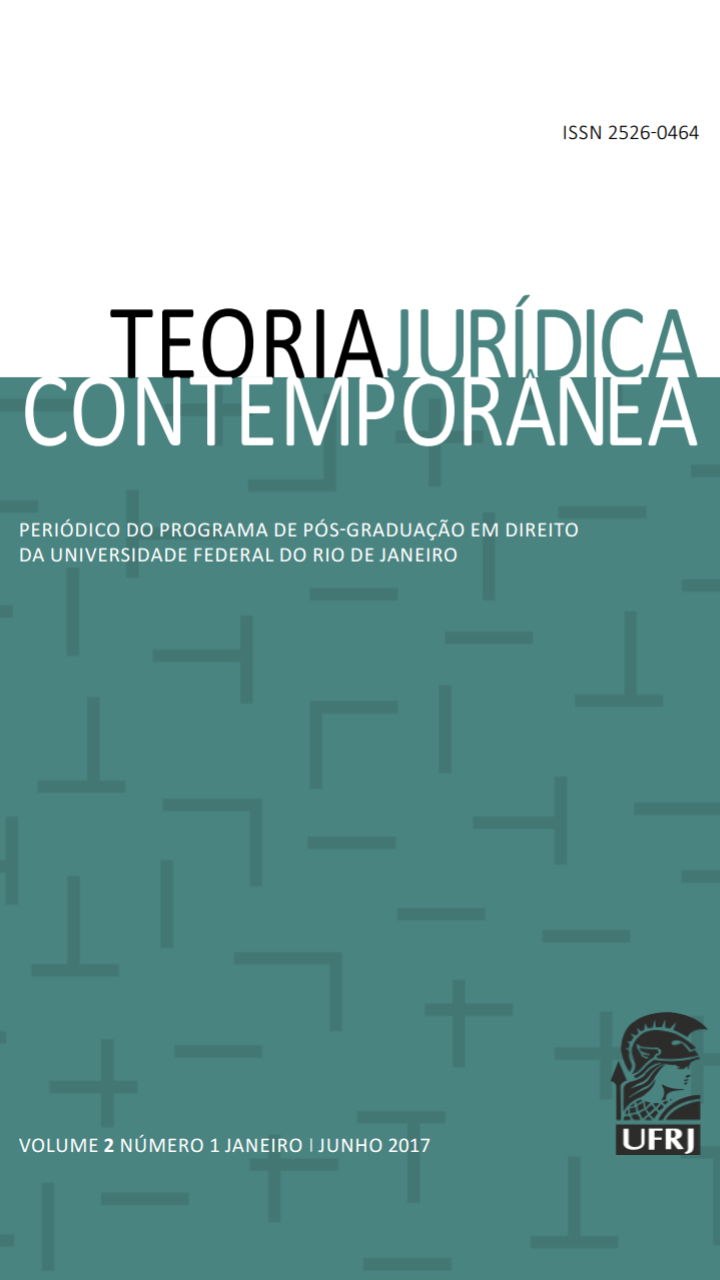Ideas introductorias sobre el nuevo constitucionalismo latinoamericano
DOI:
https://doi.org/10.21875/tjc.v2i1.11994Keywords:
Constitución, Constitucionalismo, Soberanía popular, Constituição, Soberania popular, América Latina, Latinoamérica, Constitution, Constitutionalism, Popular Sovereignty, Latin AmericaAbstract
RESUMEN:
La elaboración y vigencia de las Constituciones de Colombia de 1991, Venezuela de 1999, Ecuador de 2008 y Bolivia 2009, han puesto de manifiesto un nuevo constitucionalismo latinoamericano. Este nuevo constitucionalismo se erige como la última generación del constitucionalismo debido a que aporta entendimientos novedosos sobre la teoría constitucional sobre la base de un renovado concepto de soberanía popular, entre otras características propias que hacen a la discusión actual del Derecho Constitucional. De esa manera, en el presente ensayo se presentan elementos introductorios sobre este nuevo momento del constitucionalismo en Latinoamérica, estableciendo sus fundamentos, alcances y principales características.
ABSTRACT:
The elaboration and validity of the constitutions of Colombia (1991), Venezuela (1999), Ecuador (2008) and Bolivia (2009) have revealed a new latin american constitutionalism. This new constitutionalism arises as the last generation of constitutionalism due to its contributions of novel understandings on constitutional theory. These contributions are based on a renewed conception about popular sovereignty, among other singular characteristics presently discussed in Constitutional Law. Thus, in the present paper we present some introductory elements of this new moment of constitutionalism in Latin America by establishing its foundations, scope and main characteristics.
RESUMO:
A elaboração e vigência das Constituições da Colômbia (1991), Venezuela (1999), Equador (2008) e Bolívia (2009) revelaram um novo constitucionalismo latino-americano. Este novo constitucionalismo surge como a última geração do constitucionalismo devido a seus novos entendimentos aportados à teoria constitucional, baseados em um conceito renovado de soberania popular, entre outras características próprias da discussão contemporânea do Direito Constitucional. Assim, no presente artigo se apresentam elementos introdutórios sobre este novo momento do constitucionalismo na América Latina, estabelecendo seus fundamentos, alcances e características principais.
References
BOLIVIA. Nueva Constitución Política Del Estado. 2009.
COLOMBIA. Constitución Política de Colombia. 1991.
DALMAU, Rubén Martínez. El proceso constituyente boliviano (2006-2008) en el marco del nuevo constitucionalismo latinoamericano. Oxfam Gran Bretaña, La Paz, 2008.
ECUADOR. Constitución de la República del Ecuador. 2008.
GARGARELLA, Roberto. El nuevo constitucionalismo latinoamericano. Algunas reflexiones preliminares. En: Crítica y Emancipación, Año II, n. 3. Buenos Aires: CLACSO, 2010.
NOGUERA, Albert. Los derechos sociales en las nuevas constituciones latinoamericanas. Valencia: Editorial Tirant lo Blanch, 2010.
OSSORIO, Manuel. Diccionario de ciencias jurídicas, políticas y sociales. Buenos Aires: Editorial Heliasta, 2003.
TREMOLADA, Eric. El Derecho Andino en Colombia. Bogotá: Universidad Externado de Colombia, 2006.
VALENCIA, Alipio. Manual de Derecho Constitucional. La Paz: Editorial Juventud, 1983.
VENEZUELA. Constitución de la República Bolivariana de Venezuela. 1999.
VICIANO PASTOR, Roberto; DALMAU, Rubén Martínez. El nuevo constitucionalismo latinoamericano: fundamentos para una construcción doctrinal. Revista General de Derecho Público Comparado, n. 9, 2011.
VILLABELLA, Carlos Manuel. Nuevo constitucionalismo latinoamericano ¿un nuevo paradigma? México: Mariel, 2014.
Downloads
Published
Issue
Section
License
The authors who publish in this journal agree with the following terms:
1. The authors maintain the copyright and grant the journal the right of first publication, with the work simultaneously licensed under the Creative Commons Attribution License that allows the sharing of the work with recognition of authorship and initial publication in this journal.
2. Authors are allowed to assume additional contracts separately, for non-exclusive distribution of the version of the work published in this journal (e.g., publishing in an institutional repository or as a book chapter), with acknowledgment of authorship and initial publication in this journal.
3. Authors are allowed and encouraged to publish and distribute their work online (e.g., in institutional repositories or as a personal page) at any point before or during the editorial process, as this may generate productive changes, as well as increase the impact and citation of the published work (See The Effect of Open Access).

This work is licensed under a Creative Commons Attribution-ShareAlike 3.0 Brazil License.

